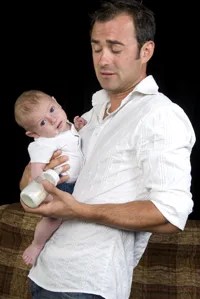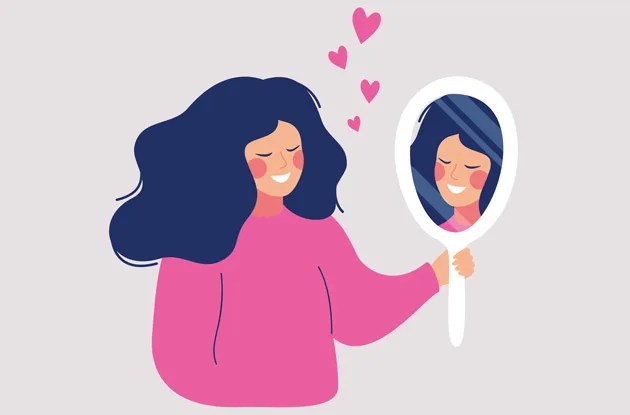
As an expectant father, Rob Sandler, 36, a medical salesman living in Houston, was excited. “I had very positive feelings all though my wife’s pregnancy,” says Sandler. “All those normal feelings that a father would have.”
However, things changed shortly after the birth of his son.
“I guess the negative feelings probably started about a week after my wife and I brought our baby home,” says Sandler. “I felt like I was sinking into a hole and not able to get out. It was overwhelming.”
Rob Sandler is not alone. Postpartum depression doesn’t just affect new mothers. According to research published in 2006 in the journal Pediatrics, 10 percent of new dads go through postpartum depression, a number only slightly lower than new mothers, at 14 percent. In actual fact, as more and more is learned about postpartum depression in men, the true figure is possibly much higher.
“It’s actually surprisingly common based on large-scale studies,” says Dr. Will Courtenay, a psychotherapist and founder of www.saddaddy.com, a website aimed at helping new dads suffering from postpartum depression. “Every day 1,000 men in the U.S. become depressed after the birth of their children, and according to some studies that number is as high as 3,000. That means that anywhere between one and 10 and as many as one in four new dads will experience postpartum depression.”
Postpartum depression in men, or as researchers are beginning to call it, Paternal Post Natal Depression (PPND), isn’t simply a matter of feeling a little blue after becoming a dad. It can be just as destructive in men as it is in women.
“I always had an underlying depression that has been managed for years, however it got worse after the birth of my twins,” says Richard Singer, 31, a writer and therapist who is still struggling with the after-effects of his own bout of PPND. “At that point, all the depression I ever felt, plus more, came back to me.”
To make matters worse, his wife was also suffering from postpartum depression. Research suggests that this is common — when one partner is depressed postpartum, the other partner is more likely to become depressed as well.
“It was very destructive to everything,” says Sandler. “The postpartum depression ended up ending our marriage.”
PPND isn’t just bad for relationships. Left untreated it can also have a negative impact on a child’s development.
“When moms and dads are depressed, they tend in engage in less positive interactions with their children, like singing, playing, taking the children out, those kinds of things,” says James Paulson, Ph.D., one of the foremost researchers in the field of PPND and the lead author of the 2006 Pediatrics study. “To most people that may seem relatively trivial, but what we know as child development researchers is that these are really critically important interactions for a child’s cognitive development.”
To understand this more, Dr. Paulson recently completed a study on how postpartum depression in mothers and fathers affected their children’s expressive language development. He found that fathers read less to their child when they’re depressed, which results in a marked reduction of the child’s expressive language at age 2.
So what can you do if you suspect you or someone you know is suffering from PPND? The first thing is to understand what triggers the condition in new dads to help nip it in the bud before it develops. A history of depression, a rocky relationship and a higher than normal anxiety about a becoming a father are all warnings signs that people should look out for pre-baby.
Secondly, know the symptoms. When people think of depression, especially postpartum depression, they think of someone being too sad to function. However, men tend to react to depression by internalizing it and restricting their display of emotion. It is not uncommon for a man suffering from PPND to be working 60 hours a week. Common signs to look for include increased level of conflict and anger with others, increased use of alcohol and other substances, frustration and irritability, being easily stressed, impulsive activities, flatness, a loss of interest in hobbies or other activities that brought them joy, or ongoing physical symptoms like headaches and digestive problems or pain.
Finally, any man who might be suffering from PPND should get help.
“The biggest problem with men with postpartum depression is not the depression itself,” says Dr. Courtenay. “It’s the fact that many men try and go it alone and don’t get treatment, and that’s the worst thing they could do.”
There are a number of online and print resources available to men suffering from PPND. Besides Dr. Courtenay’s website, Postpartum Depression for Dummies by Shoshana Bennett, Ph.D., is an excellent book for both men and women who want to understand more about postpartum depression.
If a new dad suffering from postpartum depression doesn’t want to get help for himself, he should at least do so for his child.





















